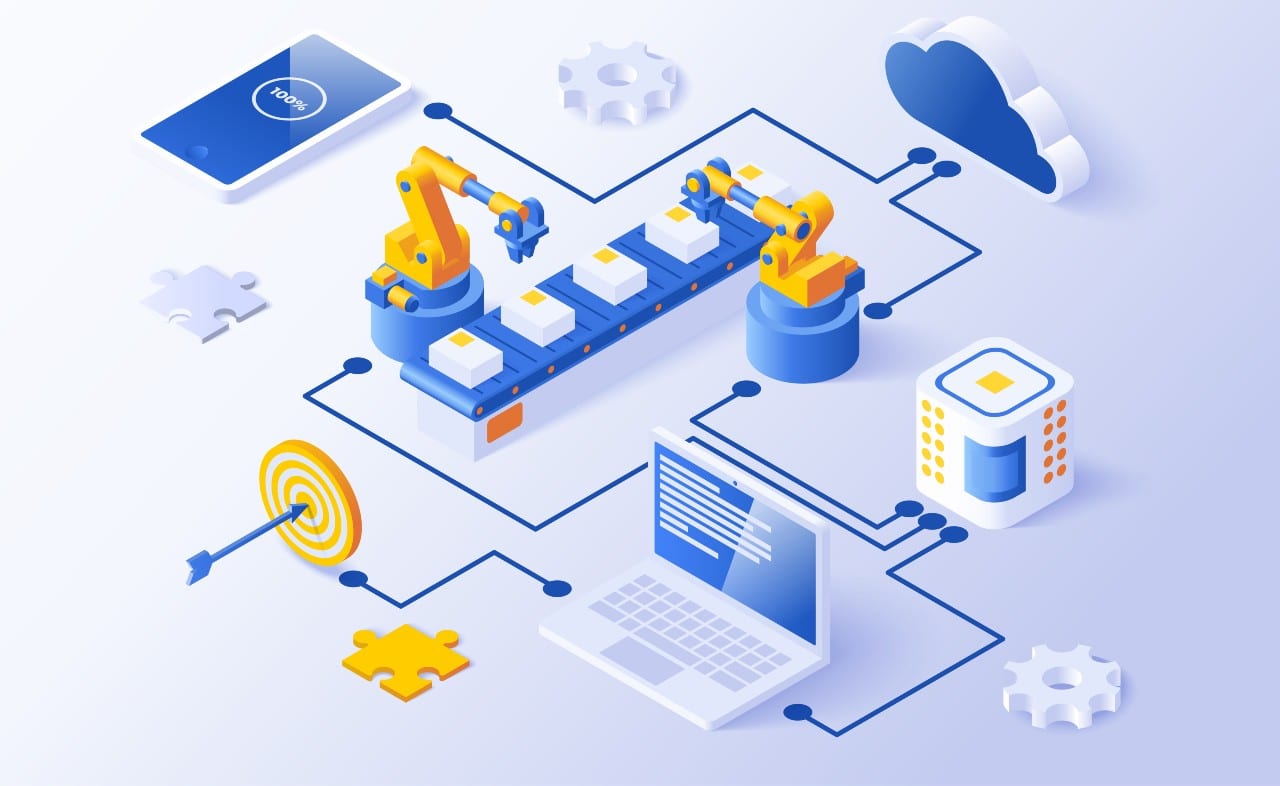You’ve heard about AI and business process automation. Welcome to Intelligent Automation – the newest iteration of business automation.
As businesses search for the next thing that saves them time and money and makes their internal processes ever more efficient, a lot of “new” technologies have appeared on the horizon. Often, these technologies are actually extensions or blends of existing solutions, made more powerful by the addition of some new technique.
Intelligent Automation (IA) is being hailed as the latest way to take streamlining business processes into hyperdrive. But why is IA getting so much attention right now? And how is it different from Business Process Automation (BPA) and Business Process Management (BPM)?
What Is Intelligent Automation?
First, let’s talk about what Intelligent Automation is.
In essence, IA takes Robotic Process Automation (RPA) – which is used to complete time-consuming repetitive tasks, such as data entry – and adds a dose of AI. And by AI, we mean more than just your standard algorithms; we’re also including subdisciplines like Machine Learning, Natural Language Processing, Computer Vision, and the like.
Why add AI to RPA? Isn’t that just duplicating what’s already there? No, not really. The critical difference here is that AI is used in the sense of “computing that mimics human decision-making”. While automation does include some advanced computing, it’s not always human-like. It doesn’t make its own decisions; it simply follows what it’s been programmed to do. The types of AI used in Intelligent Automation do perform some analysis and what we might call reasoning. So, as we mentioned in the introduction, we could consider IA as the evolution of RPA. It can handle more complicated tasks than standard RPA alone can do.
Because IA analyzes and recommends in addition to simply carrying out automatic processes, it can find ways to reduce costs, speed up timelines, monitor and ensure compliance, and improve efficiency. It can especially help with workflow mapping, end-to-end process automation, and process simplification, improvement, and monitoring.
Intelligent Automation By Any Other Name
Just in case the line between RPA/BPA and IA wasn’t already slightly blurry, let’s introduce another term: hyperautomation. Depending on who you ask, hyperautomation is the same as Intelligent Automation. On the other hand, hyperautomation can be a broader term and include IA as well as RPA and any other combination of automation with machine learning or AI.
So, if you’re discussing IA or RPA or hyperautomation, be sure everyone knows exactly what variant you’re talking about. But call it what you will, IA is certainly generating a lot of interest.
Why the Buzz Around IA Has Gotten Louder
Aside from the perennial goals of increasing efficiency and productivity, there’s been another recent impetus to the acceleration of business process automation.
The COVID-19 pandemic might be under control in many areas, but businesses are still dealing with unexpected challenges and disruptions. And because IA is all about improving agility and scalability – as well as speeding up processing and improving accuracy – many organizations, thought leaders, and decision-makers are showing an interest.
Intelligent Automation and the Future of Business Process Management
As we stated earlier, Intelligent Automation is one of those concepts that combines, builds on, and ultimately enhances what’s already there – in this case, business process optimization. The end goal is to use the available technological enhancements to simplify complex processes, reducing waste and removing bottlenecks and pain points.
Properly considered, IA isn’t so much a replacement for BPM (or RPA or BPA) as it is a natural evolution of it. We expect to see this addition of powerful new technological capabilities to established business practices continue – and to bring positive impact with it.
Authored by: Anil Kaul, CEO at Absolutdata, an Infogain Company and Chief AI Officer at Infogain
Related Absolutdata products and services: Analytics, Data Science & AI, NAVIK AI Platform, NAVIK Operations AI, Hyperautomation































